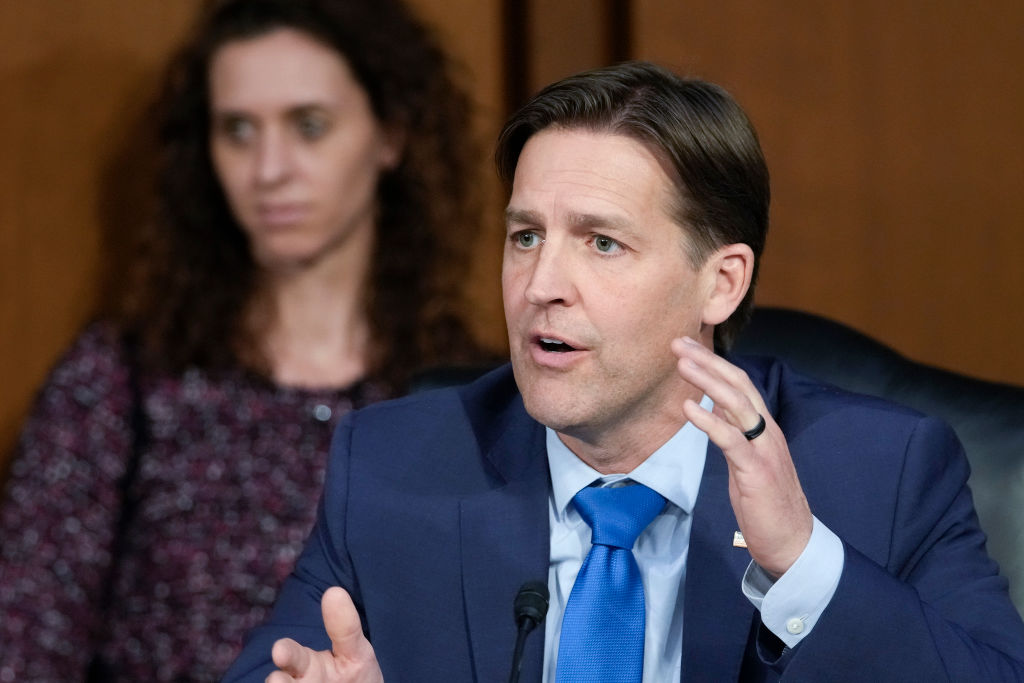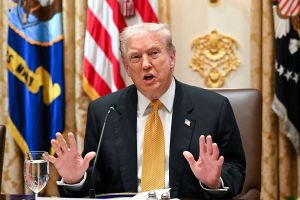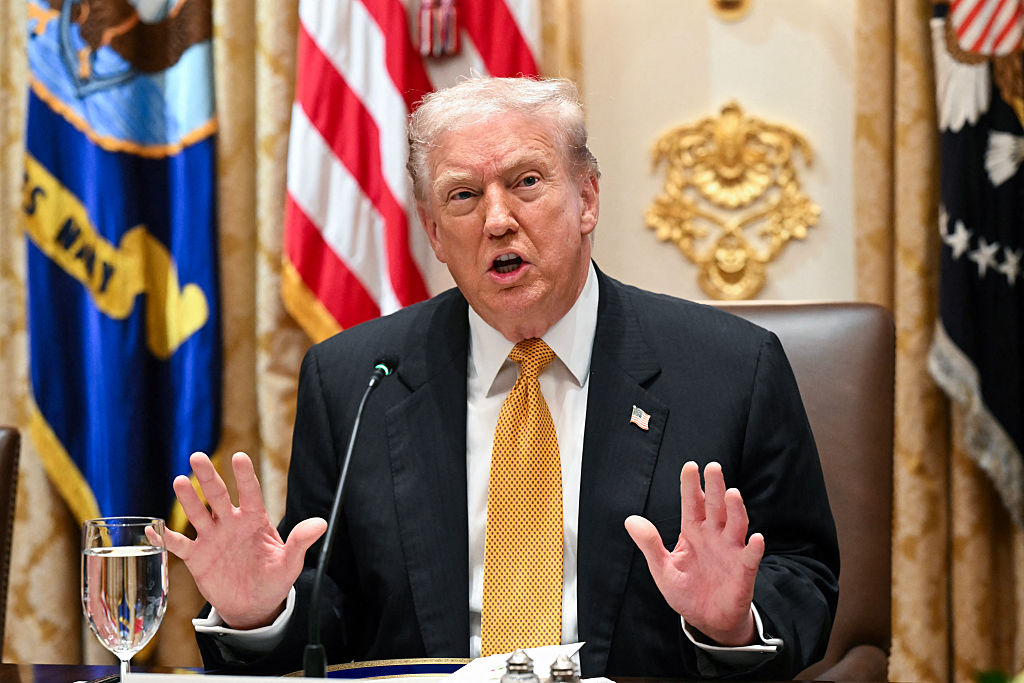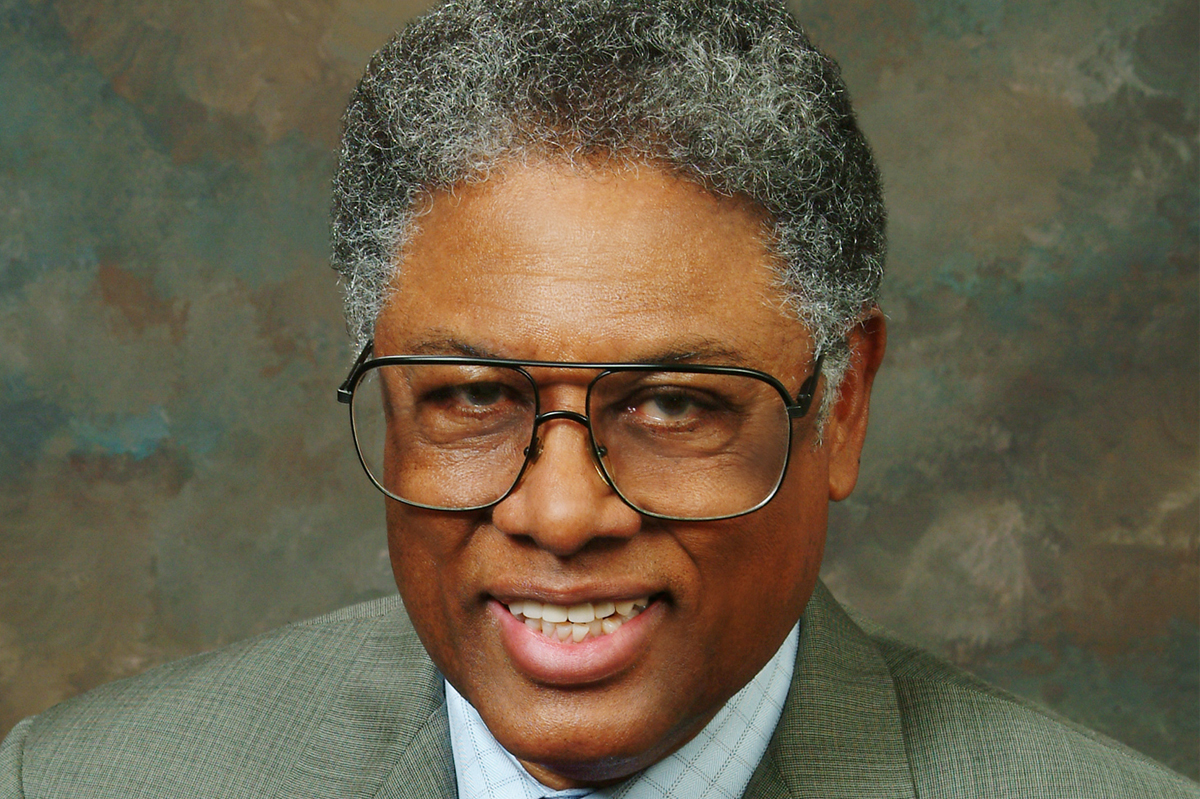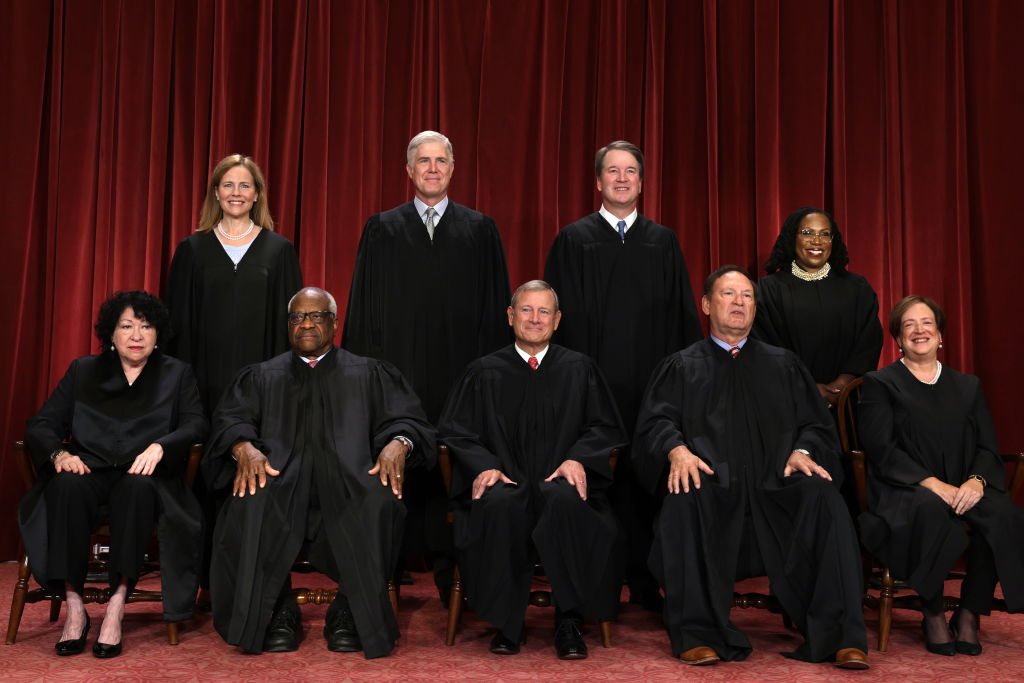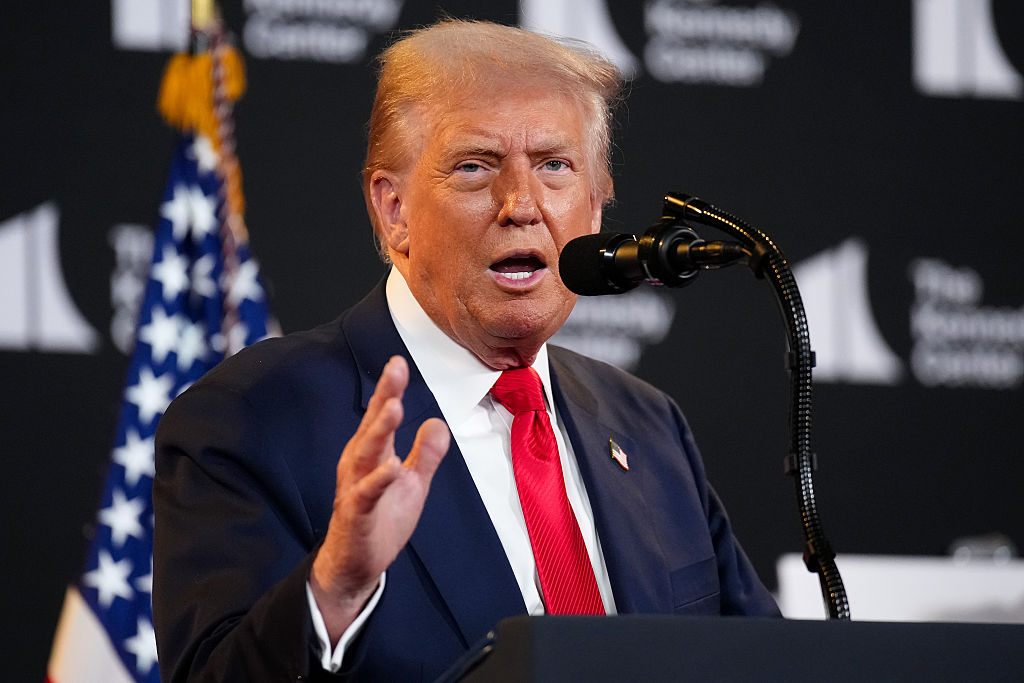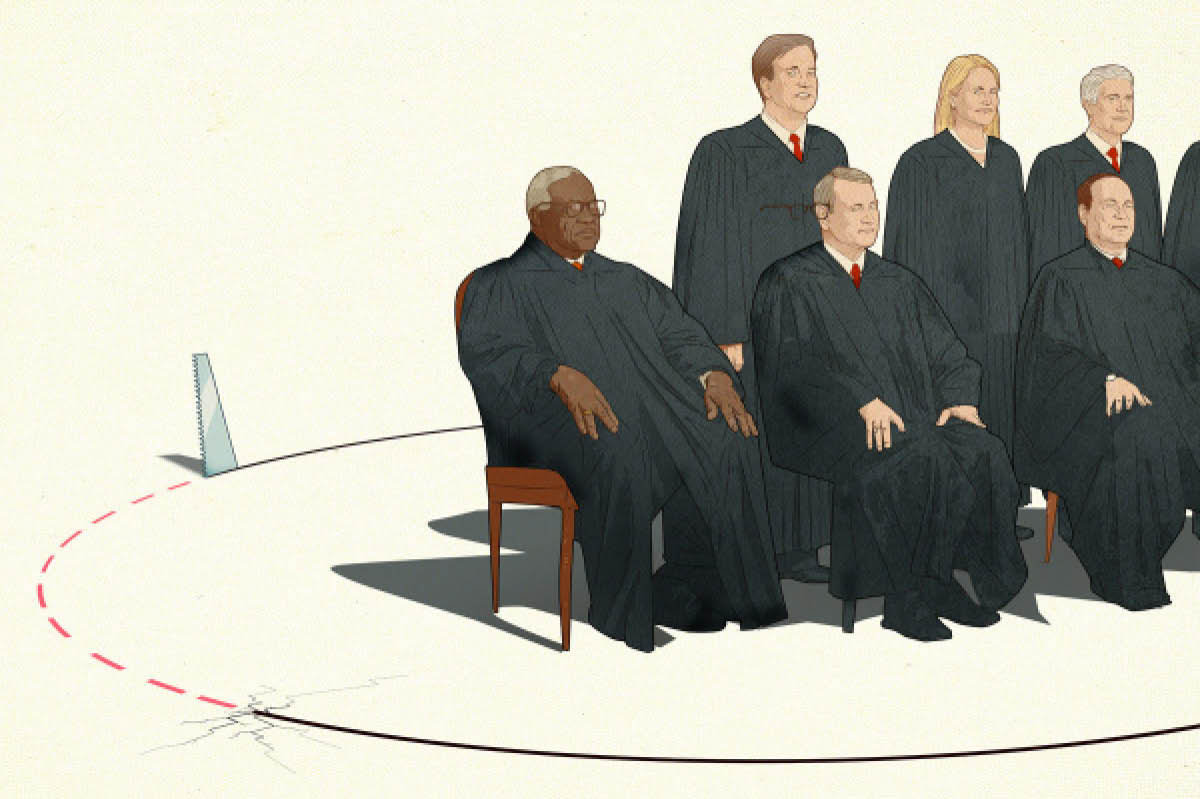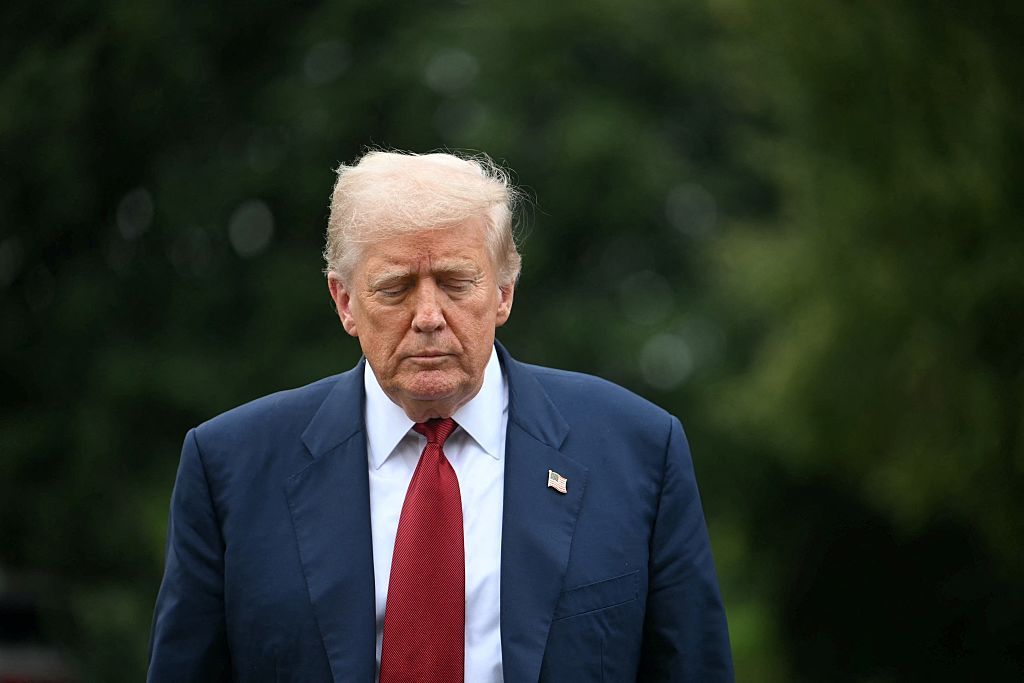Senate carpool dad Ben Sasse recently made headlines when he went on a rant against installing TV cameras inside the Supreme Court. “A huge part of why this institution doesn’t work well is because we have cameras everywhere,” Sasse said of Congress. He warned that televising the Supreme Court might cause it to go the same way, that it might incentivize, as he delicately characterized Congress’s conduct, “jackassery.”
There’s an entire anthology waiting to be written on Sasse’s use of creative swearing in the Senate (after the January 6 riot, he waxed poetic about “kicking Hitler’s ass and going to the moon”). Yet the senator from Nebraska is absolutely right. There’s a movement afoot to install cameras in the Supreme Court, and unless we want our justices behaving like Kardashians, it needs to be stopped.
The Supreme Court is one of the last institutions in America that hasn’t been corrupted by political polarization. That isn’t to say the Court is never political: left-wing justices bend the law in favor of their ideology all the time, while casa de Clarence Thomas was apparently deeper into the QAnon fever swamps than we ever realized. But at least the Court pretends it isn’t political, even when it clearly is. And very often it really isn’t political: an analysis by ABC News found that two thirds of the decisions during the last Supreme Court term were either unanimous or near-unanimous.
The law really can be objective, contra the cynics who insist America is a failing shitpostistan doomed to a future of political tribalism. And while the justices can be combative — Neil Gorsuch and John Roberts seem not to like each other, while Sonia Sotomayor is notorious for badgering lawyers — there’s also, for example, Clarence Thomas, who very rarely asks questions. The justices might lean left or right, but they have their own styles, their own jurisprudential nuances, that transcend our boring political binary.
The fastest way to ruin all this would be to install cameras on the bench. Sasse is dead-on that surveillance changes human behavior. The risk isn’t that the justices would feel any kind of electoral pressures, since they’re appointed for life. It’s that they would feel the same image consciousness that increasingly afflicts the rest of us. The Mediaite headlines write themselves: Sotomayor OWNS conservative lawyer — and then she uploads the video to her YouTube account and she tweets it out and watches her follower count go up like the ticker on a gas pump and then she takes a selfie with Elena Kagan after the arguments and posts it to Insta and omg and #squad and you go gurl!
I’m not sure the internet is making us dumber, but it’s definitely making us bitchier. We treat government like a sports game, cheering on those we love, sniping at those we hate, making insane accusations against the other side (remember when the “okay” hand sign became a bat signal for white supremacists?). And while such engagement might seem too ridiculous to be harmful, it motivates those in power to play along. They end up calibrating their conduct to the whims of the mob. They might even try to harness the seething cauldron, grow more performative and abandon any kind of independence (see: Cruz, Ted, entire life of).
The Supreme Court is the most trusted branch of government precisely because it isn’t subjected to these pressures. If you want a glimpse at what would happen if it was, consider that all fifty states allow some kind of cameras into their courtrooms. It’s thanks to this that the OJ Simpson trial became a televised celebrity circus, the Casey Anthony trial seemed at times to be deciding the fate of a witch, and the Kyle Rittenhouse trial got shoehorned into all the usual culture war narratives.
In fairness, the juries in each of those trials got it right in the end. But that doesn’t mean this is a healthy precedent to set for the highest court in the land. The most popular argument in favor of cameras in the Supreme Court is that it would make the institution more democratic and transparent. And the best argument against them is that the Supreme Court isn’t supposed to be democratic and transparent. It’s accountable to the Constitution, not the demos, which so very often today translates into “an unrepresentative online mob of the privileged.” Even a republic like ours needs elite institutions shielded from the town criers, if the law is to remain supreme.
Maybe instead of asking why there aren’t cameras on the Supreme Court, we ought to be asking why there are cameras everywhere else. Is a state of round-the-clock iPhone surveillance really in the spirit of a free society? How can we accuse China of being Orwellian when tumbrils full of fresh Winstons and Julias clatter daily across our Twitter feeds?



